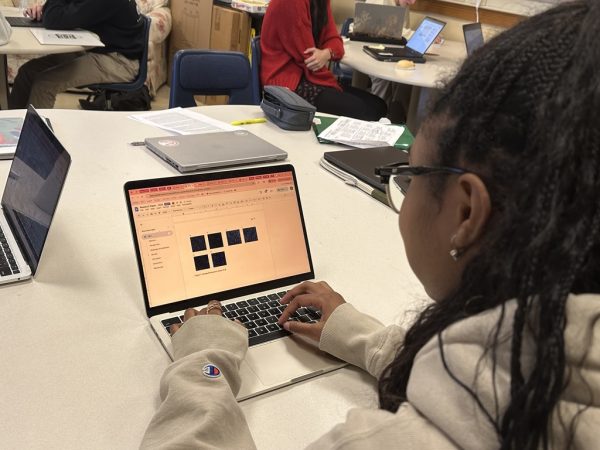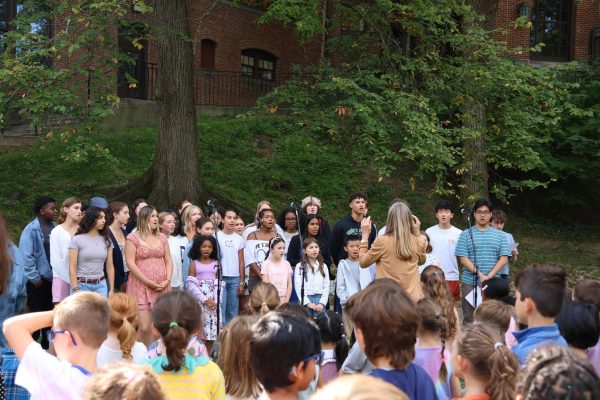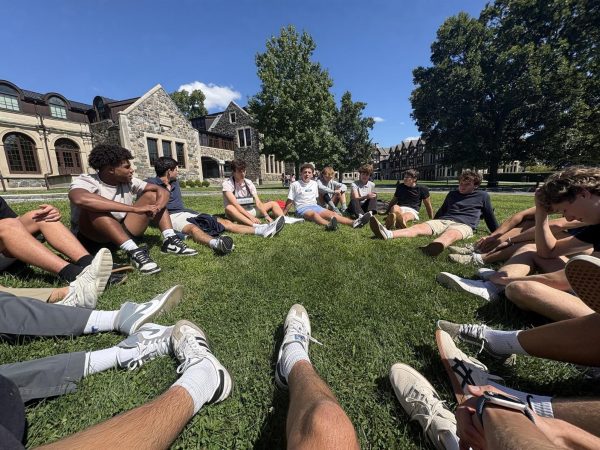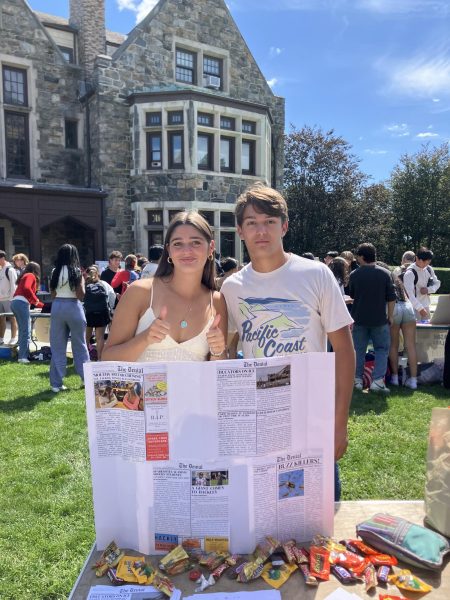The Future of Trimester 2 Exams
Adaptations to school life during COVID-19 led the administration to the decision to cancel trimester two exams this year. The cancelation of these exams led to a debate within the Hackley administration; will trimester two exams be back next year? Will there be changes to these exams?
Mr. Andrew King, director of the Upper School, explained that this past summer when the administration was deciding the fate of the trimester exams for the upcoming school year, they took into account the possible loss of teaching days due to the uncertainty of the pandemic. Therefore, in order to maximize the number of teaching days, the administration decided that eliminating the trimester exams would help achieve that goal. Additionally, with New York health and safety protocols to follow, scheduling conflicts, hybrid students, and a number of other factors to consider due to COVID-19, the cancellation made logistical sense. However, the future structure of the exams is in jeopardy.
“Increasingly, educators, at least in the humanities, are edging away from tests and quizzes […] we still use them but we’re edging away from them because as people discovered with grammar a long time ago, students can do incredibly well on a grammar test and fail to use the same grammar in their writing that they just tested well on,” said Head of English Department, Doctor Richard Robinson. The English department gave up exams a number of years ago, and for some language classes – depending on the class – the exams were recently ended. Are other departments looking to give up exams as well?
“Testing has kind of a limited utility…[it doesn’t] support students to be the best possible readers, writers, and thinkers.” Doc Rob continued, “[exams] are great for assessing the recall of information in a limited period of time, and are good for assessing your ability to make certain kinds of intellectual moves in a limited amount of time.”
However, the specific kind of information that the English Department uses, “which is literary concepts, and literal and cultural theories” are not compatible with exams. In the long run, the cancellation of exams came down “to exams limiting the scope of what we ask students to do,” and therefore the department chose to emphasize more useful and productive activities, such as graded discussions and essays.
“You stop school, you stop minors, and it’s a test that is really high stakes and a really high percentage of the grade,” Mr. King said. Additionally, the mid-February timing of exams “also complicates athletics, admissions – because if we have two weeks of no school, when can the kids that we’ve offered admissions spots come back and revisit?”
“There is value in an exam experience because when you get to college, you’re going to get hit with exams. College teaching and college assessment is probably still going to be exam-heavy,” Mr. King said. However, there is an intellectual benefit to exams, as it allows “you [to] learn a lot about how you learn when you study for the exam.”
Eleventh-grade biology teacher, Ms. Amanda Esteves-Kraus, agreed with the importance of an exam. Ms. EK was a bio major in college, and specifically in the science department, all of her classes had from two to four big exams per semester. The exams were not only “nerve-racking” but also were 80% of her final grade. Having large exams in high school, therefore, does somewhat prepare you for the college curriculum. Ms. EK does however think “it is challenging when there is just one exam.” Regardless, she still thinks that “some model of having a couple bigger tests that require you to really pull lots of different things together from throughout the year is really good practice.”
“Certain classes and departments are absolutely eager to [change the exam]” Mr. King said. Yet, others are in favor of keeping their traditional ways. Regardless, Mr. King states the exams will probably exist in some form in the future. What changes would the administration possibly make to exams? Mr. King gave a peek into the administration’s discussions as he stated there are a few possibilities being discussed: “the two-week schedule that we saw might not come back in that exact fashion […] It might come back with a slight revision.” They have also talked about “shortening the exam duration, shorter exams and maybe having them worth less weight.” Although the exams will most likely still play a role in Hackley’s academics, the importance of that role and what that role might look like is up in the air.
“I’m very very happy because I think it is very stressful that one test could bring down your entire average in just two hours. It brings unnecessary stress to students” said sophomore Mason Napach. Junior Mira Zaslow was content as well with this temporary cancellation of midterms, especially considering the problems that ensued the ongoing pandemic this year. “[I] would rather [have] no midterms and another schedule for those two weeks instead of exams,” Mira said. On the other side of the spectrum, “midterms are the easiest part of the year for most people because there are no classes and all that” senior Arjun Dayal said. He also said that exams had no effect on his average, but for most people, it has more of a positive effect. These students are a small sample that reflects the range of opinions regarding this topic. Not only are there a wide range of opinions on exams within the administration, but in the student body as well.






A.D. • Jun 7, 2021 at 4:17 pm
This article was great!